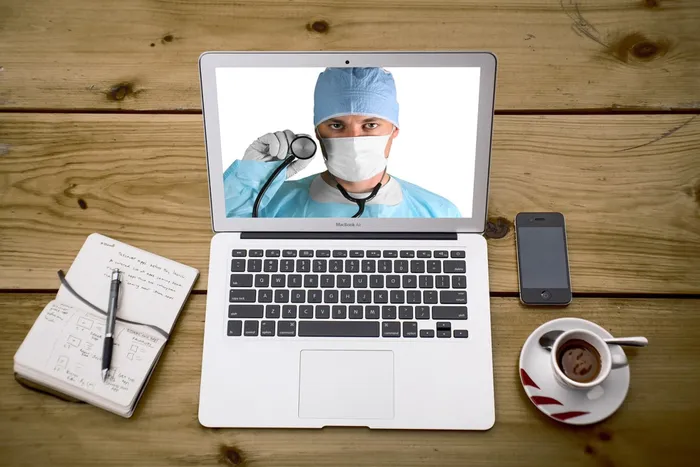The promise of GenAI to revolutionise health care in South Africa

Gen AI can target specific diseases through the use of large language models in training GenAI to revolutionise disease-specific expertise. Picture: Tumisu/Pixabay
In an era where demand for health-care services far exceeds supply, the advent of Generative Artificial Intelligence (GenAI) offers hope for a much-needed revolution. However, experts emphasise that technological advancements must never come at the expense of patient rights.
Recently, experts unpacked Generative AI in health care in a webinar held in collaboration with experts from UCT and Newfire Global.
The webinar highlighted the potential of GenAI to transform health care while ensuring ethical considerations and equity remained at the forefront.
According to Dr John Sargent, co-founder of BroadReach Group, the mismatch between supply and demand was the result of trying to deliver “sick care” using an antiquated model where physicians are paired against patients in a certain ratio.
As part of our health systems, we need to match supply and demand in a new digital way to be more effective.
“With a scarcity of doctors, nurses, and medications, health care operates on an outdated ‘sick care"’model,” he said.
Sargent advocated for new digital approaches that effectively matched supply and demand, with GenAI playing a pivotal role. However, he warned against getting distracted by technology, emphasising the need to prioritise patient care and protect privacy while addressing biases.
This breakthrough holds great promise for the campaign to end HIV infections by 2030, particularly in addressing challenges such as patient loss to follow-up, according to Jaya Plmanabhan, chief scientist at Newfire Global.
Gen AI can target specific diseases through the use of large language models in training GenAI to revolutionise disease-specific expertise.
The chief technology officer of the BroadReach Group, Ruan Viljoen, echoed similar sentiments, saying health inequity continued to be a challenge, but GenAI could alleviate burdens on front-line health-care workers and improve access to care.
By automating tedious tasks like administrative work and providing actionable insights, GenAI enables health-care professionals to focus on delivering value-added care while augmenting human intelligence.
There are a number of ethical concerns surrounding the use of artificial intelligence (AI) in health care. Some of the key ethical conundrums associated with GenAI in health care include:
Maintaining patient privacy and ensuring the security of this sensitive data is critical. Moreover, AI algorithms can inherit biases from the data used to train them, leading to potential discrimination or unequal treatment of individuals or specific population groups.
Addressing these ethical conundrums requires interdisciplinary collaboration between health-care professionals, AI developers, policymakers, and ethicists.
Guidelines, regulations, and frameworks that prioritise patient autonomy, privacy, fairness, accountability and transparency need to be established to ensure the responsible use of GenAI in health care
Authenticity, accuracy, and fairness are non-negotiable ethical requirements for health-care AI, according to AI ethics researcher Vedantha Singh.
Contrary to popular belief, GenAI has the potential to benefit not only urban patients but also those in rural areas. With increasing internet connectivity and advancements in edge computing, smaller GenAI models can be deployed in rural clinics, reducing the need for extensive data and computing power.
Off-line functionality further extends the reach of GenAI to areas with limited connectivity, promising more equitable health care access for all.
The potential of GenAI in revolutionising health care was huge but it must be harnessed with ethics and equity in mind, the experts agreed.
Related Topics: